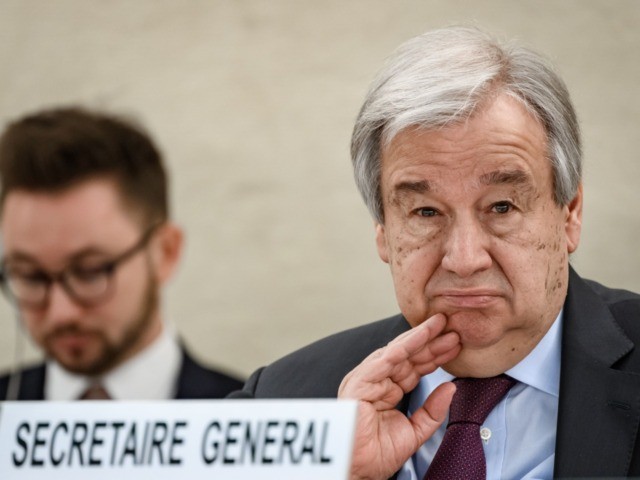The U.N. General Assembly unanimously approved its own resolution Thursday recognizing “the unprecedented effects” of the coronavirus pandemic while at the same time claiming a “central role” for itself in leading the world in its response.
It was the first resolution adopted by the 193-member globalist body on the pandemic since it was first declared an international emergency last December in Wuhan, China.
The resolution, approved by consensus, stresses “the need for full respect for human rights” and warned the world “there is no place for any form of discrimination, racism and xenophobia in the response to the pandemic.”
According to U.N. Secretary-General Antonio Guterres, the coronavirus is “the most challenging crisis we have faced since the Second World War.”
He said the new resolution reaffirms the General Assembly’s “commitment to international cooperation and multilateralism and its strong support for the central role of the United Nations system in the global response to the coronavirus disease 2019 (COVID-19) pandemic.”
The World Health Organization (WHO) is the specific arm of the U.N. dedicated to health issues and it is looking to advise and lead the international response.
Alas, this did not get off to an especially promising start.
As recently as January 14, WHO was repeating China’s deceptions and led other nations to make false assumptions about the coronavirus, which left them more vulnerable to the pandemic:
The approved U.N. resolution was submitted by Switzerland, Indonesia, Singapore, Norway, Liechtenstein and Ghana, and adopted by 188 of the 193 states that make up the body, diplomats said.
Unlike the U.N. Security Council, the resolutions adopted by the General Assembly are not binding or enforceable, meaning the U.N.’s latest deliberation will be seen as nothing more than diplomatic bluster and window dressing by opponents.

COMMENTS
Please let us know if you're having issues with commenting.